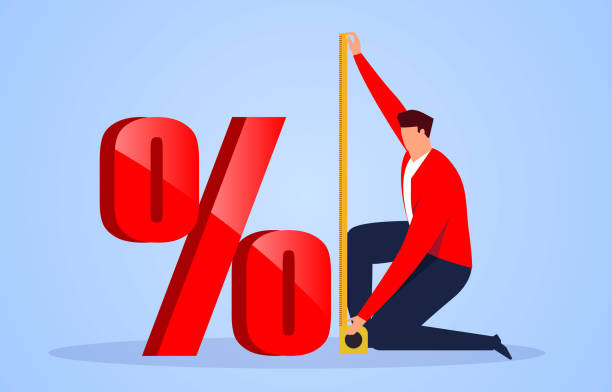In the face of a CPA shortage, how can you negotiate the tax consequences of cryptocurrency?
Because of the high demand for CPAs, many people are left to fend for themselves when it comes to navigating the complicated tax landscape that virtual currencies have created.
Cryptocurrency is a big topic throughout the world, especially with Bitcoin (BTC), Ethereum (ETH), and other cryptocurrencies reaching new highs, resulting in another profitable year for investors. While the profits appear to be favourable on paper, one aspect is sometimes overlooked: crypto taxes.
Traders usually take advantage of the continual changes by buying the dip, selling the uptrend, and repeating the process. Unfortunately, each transaction is treated as a taxable event, making the topic of bitcoin taxes difficult to broach.
The anticipated crackdown on cryptocurrency taxation only emphasises the importance of starting the discussion now. This crackdown isn't new; in 2021, an IRS executive claimed that the US was losing trillions of dollars in unpaid taxes each year, with a large percentage ascribed to the crypto market. As a result, many subpoenas have been issued in the United States against Coinbase, Kraken, and Poloniex, requiring these exchanges to divulge information with the IRS.
Recent reports by the IRS confiscating billions of dollars in bitcoin that may be tied to tax fraud have been fueled by events like these. While some of these tactics to avoid paying taxes may appear severe, especially in relation to one's own math errors, it is important to remember that those who are willfully evading taxes are the ones who would be affected by the draconian crackdown.
The IRS has noticed that more investors are now participating in the digital currency market than ever before, a trend that can be traced in part to the amount of money the government distributed during the COVID-19 outbreak. The number of crypto traders in the United States has reached an all-time high and is continuing to rise as investors have more discretionary income. According to Grayscale Investments, an estimated 55 percent of American investors own Bitcoin at the moment.
Recognizing this, the IRS Form 1040 for 2021 now asks recipients if they received, sold, swapped, or disposed of another financial interest through virtual currency at any point throughout the year. Users must then respond by checking the "Yes" or "No" box.
The IRS further demonstrates their zeal by including this question on the form, directly below a taxpayer's name and address, in a prominent spot. The language has also been clarified to state that only taxable events would be labelled as "yes" on the amended form, such as receiving cryptocurrency as payment, airdrops, exchanging other cryptocurrencies, selling assets, earning from mining, and staking.
After you've checked yes, the next stage in crypto tax management is to figure out how much you owe. The Internal Revenue Service has stated that cryptocurrency and virtual currencies are considered property. As a result, users must recognise and declare any taxable gains or losses, with failure to do so potentially resulting in an audit, interest payments, and, in rare cases, penalties. As a result, many people have sought the advice of a professional crypto accountant.
In a typical pre-pandemic year, 15% of employees at Ernst & Young (EY), Deloitte, KPMG, and PricewaterhouseCoopers have departed one of the top four accounting companies (PwC). Although it is impossible to predict if these figures would remain unchanged this year, many businesses agree that turnover will be higher than in past years.
Following another year of pandemic, the profession as a whole has been overworked and underpaid this year. An estimated 40% of accountants have left the CPA sector as a result of the ongoing economic trend known as the Great Resignation, resulting in a severe lack of experts. As the laws of supply and demand dictate, decreased supply leads to higher costs, and hence a lower probability of an investment receiving the tax assistance they require.
Even individuals with the financial means to engage a CPA may have trouble locating one with experience in crypto taxation.
Because users have fewer resources, the question of paying bitcoin taxes does not necessarily imply that they should navigate the complex tax landscape on their own. Instead, new crypto tax software has made it easier for consumers to organise their cryptocurrency data and compute their tax liability.
Accointing, a cryptocurrency tax software with over 400 integrations, including Binance, BitMex, Kraken, and Tron, allows users to access data in one centralised location, automatically calculating a crypto trader's wins and losses, and classifying transactions such as decentralised finance (DeFi) staking, margin trading, and mining.
"Accointing is an easy-to-use and elegantly designed software developed to enable users handle crypto taxes on their own, without the requirement for a CPA to process data," says one of their team members. Accounting's crypto tax calculator output can be given to a CPA, or users can use the specific TurboTax output to submit their yearly income and taxable gains with the IRS."
As a result, customers can generate a personalised bitcoin tax return for their nation of residence in just five clicks. The "holding duration tool" can also be used by investors to optimise transactions by identifying which tokens have been kept for a year or more.
Users can avoid the battle for a diminishing accounting force by using services like Accointing to manage the challenging tax landscape of the cryptocurrency world.

















